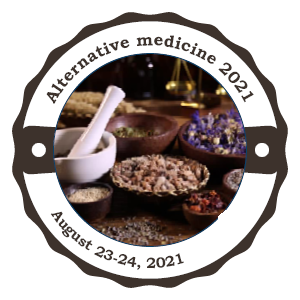
Samra Bashir
Faculty of Pharmacy, Capital University of Science and Technology,Pakistan
Title: The Bronchodilator Effect of Trianthema portulacastrum, Linn. (Aizoaceae), is Mediated through Dual Muscarinic Receptor and Ca2+ Antagonism
Biography
Biography: Samra Bashir
Abstract
Back ground: The horse purslane, Trianthema portulacastrum, Linn. (Aizoaceae), is used in traditional systems of medicine for the treatment of asthma. The current investigation was aimed at exploring possible mechanisms underlying the potential bronchodilator effect of Trianthema portulacastrum (T. portulacastrum).
Methodology: The whole plant extract of T. portulacastrum prepared in 70% (v/v) aqueous-methanol was studied on carbachol-induced bronchoconstriction in anaesthetised rats for its in-vivo bronchodilator activity and on isolated rabbit trachea, to find out the mechanistic basis of the therapeutic effect. The data were analysed using Student’s t-test.
Results: T. portulacastrum crude extract dose-dependently (3 - 30 mg/kg) inhibited carbachol-induced bronchoconstriction in anaesthetised rats, similar to the standard bronchodilator drug, aminophylline. When tested on rabbit trachea, the plant extract inhibited carbachol (1 µM) and high K+ (80 mM)-induced contractions in a fashion similar to dicyclomine, indicating the presence of airway-relaxant activity, possibly mediated through blockade of calcium channels and muscarinic receptors. The presence of a dual muscarinic and Ca2+ channel inhibitory mechanism was confirmed when the crude extract, caused a rightwards shift of carbachol and Ca2+ concentration-response curves, similar to dicyclomine.
Conclusion: This investigation indicates that the T. portulacastrum extract possesses bronchodilator activity that is possibly mediated through a combination of an anti-muscarinic effect and calcium channel blockade, providing a scientific basis for its medicinal use in asthma.

